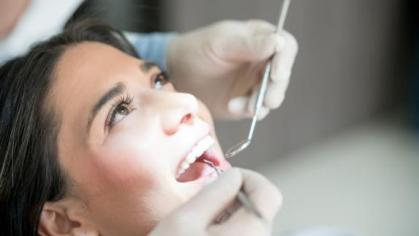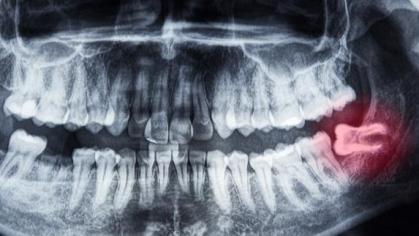Treatment for Dental Emergencies
Accidents and injuries can change your smile in an instant. That’s because accidents can cause chipped, broken and loose teeth. They can also cause teeth to get knocked out partially or completely. Crowns may come loose or fall off, and, if the person was wearing braces at the time, the brackets and wires could be damaged as well. There may also be fractured or broken bones, soft tissue injuries and disfigurements of the mouth, jaw and face.
The experts at Rutgers Health University Dental Associates see cases like this all the time. They know firsthand just how important it is to get treatment after a dental emergency. Let’s take a closer look.
About Traumatic Dental Injuries
Dental trauma is any injury to the mouth or surrounding areas. Usually, the front of the mouth and the front teeth are the most common places to be affected. While studies show that only 4.5% of the global population experiences a traumatic dental injury per year, they can be very damaging and costly when they do occur. People sustain dental injuries for all sorts of reasons and everyone’s case is unique. Some common causes include:
- Car, bike and skateboarding accidents
- Injuries from playing contact sports (football, hockey, wrestling, etc.)
- Falling down and hitting the face against a hard surface
- And many more
For example, Dr. Vincent Ziccardi and Dr. Mohamed Kamel treated a patient who got in a car accident on the Garden State Parkway, and as a result, had shattered teeth, a split lip, a broken jaw bone and several facial lacerations.
Another common example of a dental injury is when young children fall down and their baby tooth gets pushed up into the gums. When this happens, the force of the impact can damage the underlying permanent tooth and treatment is required to make sure it grows in properly.
Exploring Treatment Options
Dental treatment after car accidents, injuries and falls looks different for everyone. In the case of the car accident victim, Dr. Ziccardi and Dr. Kamel had to rebuild the patient’s jaw using bone grafts taken from his hip. The shattered teeth couldn’t be saved and had to be replaced with implants, which offered a natural-looking appearance.
A lot of times, loose or knocked out teeth can be saved. This might involve reinserting the tooth in the gums and using braces or splints to hold them in place until they have time to fuse back to the bony and gum tissues surrounding it. If the teeth are chipped, the dentist may recommend bonding, veneers or crowns depending on which tooth it is and how severe the chip is. If the injury involves more extensive damage or disfigurement, surgery may be required.
What to Do After Traumatic Dental Injuries
If you or someone you know sustains a dental injury, what should you do? First and foremost, stay calm. If a permanent tooth was knocked out, acting quickly will give you the best chance of saving that tooth. It’s recommended that you hold the tooth by its smooth, white crown and carefully rinse it in milk or a saline solution – do not scrub or use water. Then, apply light pressure to reinsert the tooth into its socket and keep it in place by biting gently on a handkerchief. After doing this, visit Rutgers Health University Dental Associates immediately for emergency treatment.
If you can’t reinsert the tooth yourself, do not let it dry out. Place the tooth in the patient’s saliva or milk – not tap water – and seal it with plastic wrap. When you arrive at our offices, we will do everything we can to save your tooth or teeth and navigate you through your recovery. For more information about dental treatment after car accidents, sports injuries and other traumatic impacts, contact Rutgers Health University Dental Associates about treatment by some of the top specialists in the area.



